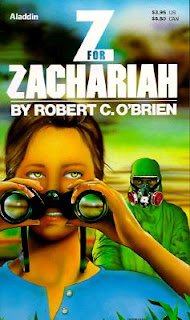What Is It About Second Books?
Currently Writing: Merlin quartet book 2
Currently Reading: Dune by Frank Herbert
The Silmarillion by J.R.R. Tolkien (Reread)
The Hostile Hospital by Lemony Snicket (audio)
Daughter of Light by Morgan Busse (Kindle)
Nausicaä of the Valley of the Wind Vol. 5 by Hayao Miyazaki
Tad Williams once wrote about the difficulties of writing
second books (and sometimes third books, in his case) because they are
essentially the middle of the story of a trilogy (or quartet). As such, these
middle books must begin and end in the middle of the story, resolving some but
not all of the conflict, if they resolve any at all.
I'm beginning to appreciate the difficulty of writing second
books for different reasons – well, one specific reason. Writing a second book with
the same characters, who are somehow different from their first-book selves and
yet the same, is just as mind-boggling as writing the first book was. It's like
Gene Wolfe said to Neil Gaiman: "You never learn how to write a novel. You
just learn how to write the novel that you're writing." So I'm re-learning
how to write a novel and how to write my characters. Merlin, as usual, is the
easiest to write because he's the closest to me personally. Bryn and Mortimer
are giving me pains mostly because I've switched up the order of POV chapters
slightly in this book, and getting their bits of the story into the right
rhythm is a bit tricky.
But these troubles have got me thinking about what I tend to
refer to as "second book syndrome" – that is, the tendency of a
second book to seem inferior to its predecessor, regardless of its actual
quality. I think this occurs, primarily, because second books are so difficult
to write and present the largest learning curve of an author. This is when you
really figure out if you can keep doing this thing we call writing; or if you
can keep this story going for more than one book, if you've already completed
others.
Some second books that suffer from second book syndrome
(hereafter SBS) come easily to mind – Harry Potter and the Chamber of Secrets,
Prince Caspian, Percy Jackson and the Sea of Monsters, and (from all I've heard
about it, all controversy aside) Go Set a Watchman. Oddly, Chamber and Caspian
are two books that I liked less when I was younger but have grown to love as
I've reread them. In Chamber's case, I believe the onset of SBS stems from the
similarity of the plot's beats to the first book's and the extreme dislike for
Gilderoy Lockhart (second only to Umbridge for characters other than Voldemort
that we love to hate). However, the book gains a great deal of importance once
the rest of the series is read, because there's so much of the latter half of
the series that's set up in that book.
Conversely, Prince Caspian suffers from SBS because of its
drastic (intentional) differences from the structure of The Lion, the Witch,
and the Wardrobe. I think it also ends up getting short shrift because it's one
of Lewis' earlier attempts at children's literature and isn't as much a classic
as LWW, despite being better written. In general, the Narnia books improve as
the series progresses, and that means PC ends up least loved. But, as with all
the Narnia books, PC contains many signature scenes and lines beloved by Narnia
fans no matter which books they prefer.
While these examples seem to indicate that SBS is most often
an inaccurate assessment of a second book's worth, there are times when a
second book really is a weak point in a series. Sea of Monsters is, to my mind,
the weakest of the Percy Jackson books despite its honorable attempt to do
something different with the books by having Grover absent for much of the book
among other plot elements that Riordan uses to avoid falling into a formula.
Most often, a book that deserves to suffer from SBS is a book that forces itself
into the middle of the story, so that it follows what might have worked well as
a standalone book and serves mostly to set up the final installment, forming a two-book trilogy.
SBS isn't widespread enough to apply to every second book.
In fact, some second books are much better than their firsts (like Perelandra
or The Queen of Attolia) or simply work as a companion book rather than a true
sequel (like The Dark is Rising or Gathering Blue) that they don't even risk
SBS.
What books have you read that suffer from SBS, whether
justly or unjustly? Have you written a sequel and had trouble continuing the
story, even if you knew where it was going?



Comments
Post a Comment
What do you think?